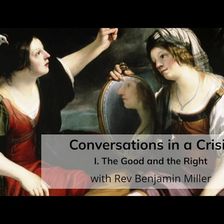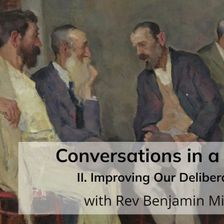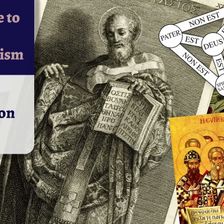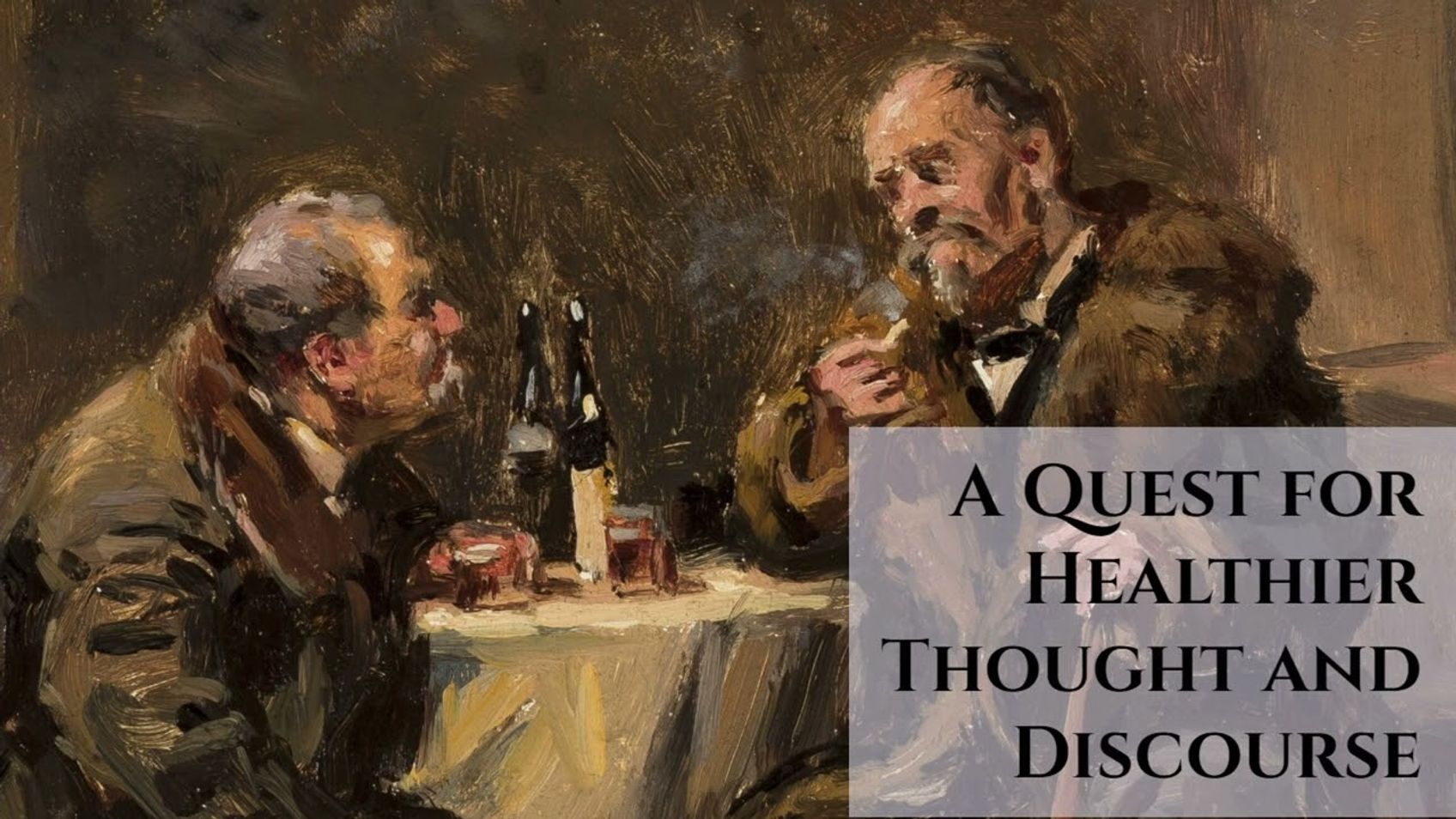A Quest for Healthier Thought and Discourse
March 1, 2022

Alastair Roberts
This is the third of a three-part series of reflections, following 'The Danger of Apologetics' (https://adversariapodcast.com/2022/01/07/the-danger-of-apologetics/) and 'Unruly Media and Our Disordered Discourse' (https://adversariapodcast.com/2022/01/11/unruly-media-and-our-disordered-discourse/).
If you are interested in supporting my work, please consider becoming a patron on Patreon (https://www.patreon.com/zugzwanged), donating using my PayPal account (https://bit.ly/2RLaUcB), or buying books for my research on Amazon (https://www.amazon.co.uk/hz/wishlist/ls/36WVSWCK4X33O?ref_=wl_share).
You can also listen to the audio of these episodes on iTunes: https://itunes.apple.com/gb/podcast/alastairs-adversaria/id1416351035?mt=2.
More From Alastair Roberts

Conversations in a Crisis: Part I: The Good and the Right (with Rev Benjamin Miller)
Alastair Roberts
March 3, 2022
Faced with our challenge of remaining faithful within and addressing our various contemporary societal crises with wisdom, Christians and churches are

Conversations in a Crisis: Part II: Improving Our Deliberation (with Rev Benjamin Miller)
Alastair Roberts
March 8, 2022
Faced with our challenge of remaining faithful within and addressing our various contemporary societal crises with wisdom, Christians and churches are

A Response to Social Trinitarianism: I. Definition
Alastair Roberts
March 9, 2022
Appeal is often made to the doctrine of the Trinity, yet confusion prevails concerning historic Christian orthodoxy's teaching on the subject and how

James: Chapter-by-Chapter Commentary
Alastair Roberts
February 18, 2022
*CONTENTS*
00:00:00 - James 1: Testing of Faith
00:11:54 - James 2.1-13: The Sin of Partiality
00:22:21 - James 2.14-26: Faith Without Works is Dead
0

Jude: Chapter-by-Chapter Commentary
Alastair Roberts
February 18, 2022
*CONTENTS*
00:00:00 - The Doom of False Teachers
If you have enjoyed my videos and podcasts, please tell your friends. If you are interested in suppo

1 John: Chapter-by-Chapter Commentary
Alastair Roberts
February 18, 2022
*CONTENTS*
00:00:00 - 1 John 1.1—2.6: Walking in the Light
00:11:39 - 1 John 2.7-29: Do Not Love the World
00:24:17 - 1 John 3.1-10: We Are God's Chil
More on OpenTheo

Is It Possible There’s a Being That’s Greater Than God?
#STRask
February 5, 2026
Questions about whether it’s possible there’s a being that’s greater than God and that’s outside of God’s comprehension and omniscience, and how to ex

Are You Accursed If You Tithe?
#STRask
December 15, 2025
Questions about whether anyone who tithes is not a Christian and is accursed since Paul says that if you obey one part of the Mosaic Law you’re obliga

How Do We Advocate for Christian Policy Without Making the Government Interfere in Every Area of Life?
#STRask
November 20, 2025
Questions about how to advocate for Christian policy without making the government interfere in every area of life, and the differences between the mo

Is It a Sin to Feel Let Down by God?
#STRask
November 6, 2025
Questions about whether it’s a sin to feel let down by God and whether it would be easier to have a personal relationship with a rock than with a God

Why Would Any Rational Person Have to Use Any Religious Book?
#STRask
December 8, 2025
Questions about why any rational person would have to use any religious book, whether apologetics would be redundant if there were actually a good, un

How Would You Convince Someone That Evil Exists?
#STRask
November 17, 2025
Questions about how to convince someone that evil exists, whether Charlie Kirk’s murder was part of God’s plan, whether that would mean the murderer d

Can Two Logical People Come to Conflicting Conclusions Without Committing a Fallacy?
#STRask
January 8, 2026
Questions about whether two logical people can come to conflicting conclusions on a topic without committing a fallacy, how Greg, as a public figure,

How Do I Determine Which Topics at Work Are Worth Commenting On?
#STRask
January 5, 2026
Questions about how to determine which topics at work are worth commenting on, and a good way to respond when you’re in a group Bible study and hear e

Can You Recommend Good Books with More In-Depth Information and Ideas?
#STRask
January 22, 2026
Questions about good books on Christian apologetics, philosophy, and theology with more in-depth information and ideas, and resources to help an intel

What Do You Think About Churches Advertising on Social Media?
#STRask
January 19, 2026
Questions about whether there’s an issue with churches advertising on social media, whether it’s weird if we pray along with a YouTuber, and whether C

What About Those Who Never Heard the Name of Jesus?
#STRask
December 22, 2025
Questions about what will happen to those who never heard of Jesus or were brought up in a different faith, whether there’s biblical warrant to think

Does God Hear the Prayers of Non-Believers?
#STRask
February 26, 2026
Questions about whether or not God hears and answers the prayers of non-believers, and thoughts about a church sign that reads (as if from God), “Just

The Heidelberg Catechism with R. Scott Clark
Life and Books and Everything
November 3, 2025
You may not think you need 1,000 pages on the Heidelberg Catechism, but you do! R. Scott Clark, professor at Westminster Seminary California, has writ

When I Can’t Stop Thinking About Something, Is That God Speaking?
#STRask
December 1, 2025
Questions about whether having a recurring thought is an indication God is speaking to you, what to say to someone who says they sinned because “God t

How Can We Know Who Is Teaching the Same Gospel Paul Taught?
#STRask
February 16, 2026
Questions about how we can know who is teaching the same gospel Paul taught, and whether or not Jeremiah 1:5 supports the idea that we pre-existed in
